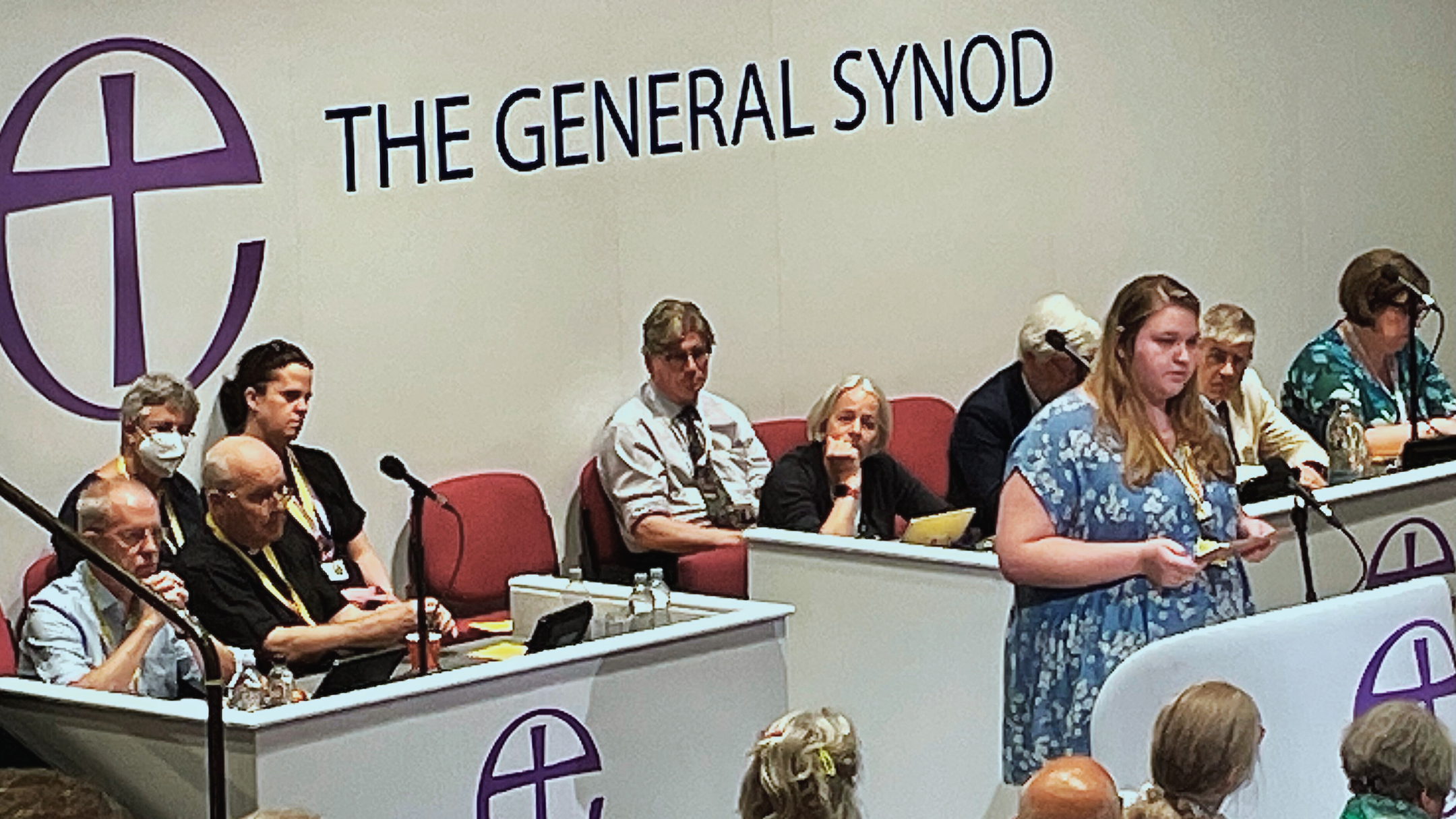What engagement means to me
Emily Hill is diocesan representative to General Synod and lay member of Diocesan Synod; she lives in the Condover Deanery. Here she writes about what engagement means for her in this Year of Engagement. At just 21 Emily signed up for a five year term on General Synod, the youngest ever representative. She is pictured making her maiden speech to General Synod back in 2021.
This year the Diocese of Hereford has called us to a year of engagement. We live in an age where communities don’t seem as close-knit as we remember them to once have been. Technology allows us to engage with people across the world but instead we are often met with bleak news and people can feel lonelier than ever. Our churches can give us a physical hub for fellowship, but we are called to go out and be a light to others, this is what engagement means to me.
Church has always been a part of my life, it’s a huge privilege of mine to have been surrounded, cared for and inspired by so many people who loved God and loved one another. I have found that often it’s the “smaller” actions that have a profound impact on me and my faith: the offer of a cuppa, an invite somewhere or the sound of a choir. But engaging doesn’t only benefit the people around us, it gives us the opportunity to be part of a wider community or have a sense of belonging and purpose. 1 Corinthians: 12 likens the church to a body, reminding us that despite the body having many different parts, each part has its own special function, but for the body to be whole it needs each part equally. This is true of our own parishes too, everyone has a strength and if we can help people to flourish, the church will flourish. I’m not a great speaker (or blogger, as it turns out!) so standing in a pulpit will never be my strength, but I am quite nerdy and so love our weird little church rules and synodical processes; they bore some people but I find them strangely fascinating. I know some great youth workers, vicars and sidespeople, they are well suited to their roles and I take great comfort knowing they are there, helping our church to grow in ways I couldn’t.
I wonder though, if you’ve ever found yourself in a role that you don’t think you’re good enough to do? I’m the first to admit that I really struggle with imposter syndrome when I’m in my church roles, surrounded by very intelligent, experienced people that seemingly find it all so easy, but I know I’m not alone in this. Honest conversations with people in all levels of the church have made me realise that so many of us struggle with imposter syndrome, but why? We believe that God has a plan for us, and if we’re just trying to do our best, then what is there to doubt?
I find that in church we are often good at assuming that a calling is something big, a change that might require you to uproot your life, move house or change jobs; but we can’t underestimate those ‘smaller’ callings and actions; engagement can look different for everyone. But more importantly, please never underestimate yourself, you’re not an imposter, we’re all just doing our best, hoping that we are fulfilling the purpose that God has for us.
- ENDS -

